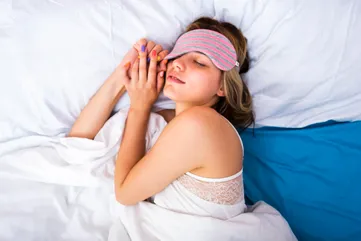Wellness Coaching
Wellness coaching supports teens in developing healthy habits across physical, mental, emotional, and social dimensions to build a balanced, sustainable lifestyle.
Why wellness coaching works
Wellness coaching addresses root causes of academic and emotional struggles, creating sustainable change through small, consistent habits.
Research by Durlak and colleagues shows that comprehensive wellness programs improve academic performance by 11 percent while reducing anxiety and behavioral problems.
You're not alone
If your teen survives on energy drinks and three hours of sleep, exercises never but games constantly, or seems perpetually exhausted despite doing "nothing," they need wellness support. Studies show 70 percent of teens don't get enough sleep, 80 percent don't meet exercise recommendations, and most report feeling overwhelmed daily. Wellness coaching helps build sustainable habits during these crucial development years.
What it looks like day to day
Student
Your teen develops a consistent sleep schedule, regular movement breaks, and healthy snack choices without constant reminders.
Parent
You notice improved mood, energy, and focus as your teen implements small wellness habits consistently.
Tiny steps to try
- 1
Sleep sanctuary
Create a bedroom environment optimized for sleep. Cool, dark, and phone-free.
- 2
Movement snacks
Build 5-minute movement breaks into study sessions. Even stretching helps.
- 3
Hydration tracking
Use a marked water bottle to ensure adequate daily water intake.
- 4
Mindful moments
Practice one-minute breathing exercises between classes or activities.
- 5
Connection rituals
Schedule regular friend time, protecting social wellness alongside academic goals.
Why teens need wellness support
Modern teen life creates perfect conditions for wellness challenges: academic pressure, social media, sleep deprivation, and limited physical activity.
Wellness coaching addresses:
• Sleep hygiene and energy management
• Nutrition and hydration habits
• Physical activity and movement
• Stress management techniques
• Screen time balance
• Social connection quality
These interconnected areas affect academic performance and happiness.
References
Durlak, J. A., Weissberg, R. P., Dymnicki, A. B., Taylor, R. D., & Schellinger, K. B. (2011). The impact of enhancing students' social and emotional learning: A meta-analysis of school-based universal interventions. Child Development, 82(1), 405-432.
Ready to help your teen thrive?
Get personalized 1-on-1 coaching to build better habits and boost grades. Join 10,000+ families who trust Coachbit.
Frequently Asked Questions
How is wellness coaching different from therapy?
Wellness coaching focuses on building positive habits and future goals, while therapy addresses mental health conditions and past trauma. Coaching is action-oriented and educational; therapy is healing-oriented and clinical. They complement each other well. Some teens benefit from both simultaneously, with coaching supporting daily habits while therapy addresses deeper issues.
My teen resists all wellness suggestions. What now?
Start with their concerns, not yours. If they complain about being tired, address sleep. If they want better sports performance, discuss nutrition. Find their motivation and connect wellness to their goals. Make changes tiny and choice-based. "Would you prefer a 10 PM or 10:30 PM phone cutoff?" gives control while moving toward wellness.
Related Terms
Related Articles

4 Healthy Habits To Set Your Teen Up For Life
Set your teen up for life with 4 healthy habits. Quality sleep, digital wellbeing, balanced scheduling, and stress management for a successful future!
Read article
4 Healthy Sleep Habits For Teens
Teenagers need 9 to 9½ hours of sleep and their body clocks are wired to stay up later than adults.The creation of healthy sleep habits for teens ensures sleep quality.
Read article
